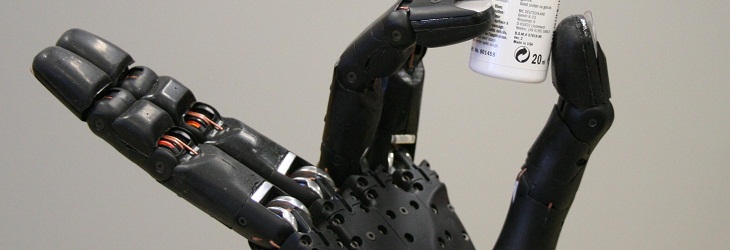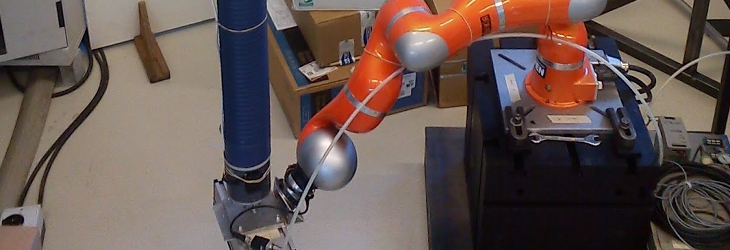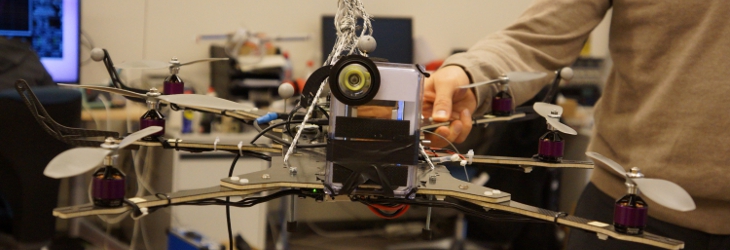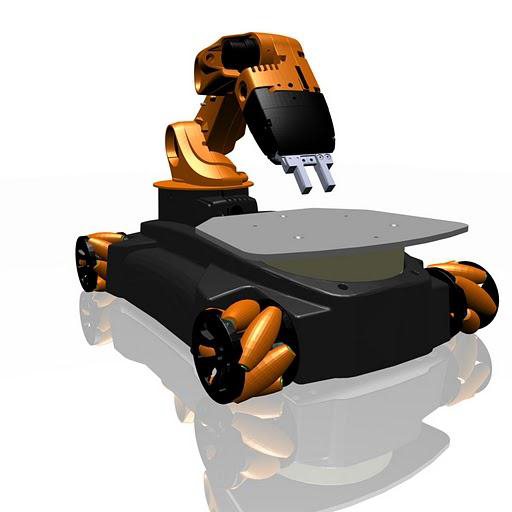EduFill - Filling the educational gap in service robotics
The EduFill-Experiment aims at bringing latest research results in mobile robots and manipulation form the laboratory to the real world. The past decade has seen tremendous progress in robotics, from perception and understanding the robots environment through navigation and control to handling complicated objects. However little of this progress has so far been materialized in the industrial practice or higher education.
The EduFill-Experiment bridges this gap between frontier research and education, by introducing state of the art concepts and solutions in mobile manipulation into the classroom. The project prepares a practical robotics curriculum, focused on modern concepts and solution for mobile manipulation, such that students can bring their robot knowledge to the industry. We follow a distinct approach of hands-on learning, using a novel software (and partly hardware) toolbox center around state-of-the-art educational and research robots. This software toolbox, developed by the project partner Bonn-Rhein-Sieg University of Applied Sciences, Germany, allows the students in class to experiment with various aspects of robot control in an interactive, intuitive and yet as realistic as possible fashion.
The software toolbox servers as the technical foundation for the robotic curriculum developed by the project partner University of Verona, Italy. The learning curriculum is developed by the project partner University of Verona, using a constructionist approach. This approach consists of developing a number of self-contained learning modules, that can freely combined into a structured curriculum that can follow a standard approach or a more application oriented approach. In the standard curriculum, the modules can be combined in a sequence similar to the material offered by most classical textbooks of robotics. Each module consists of a theoretical part and a simulation part, which allows the student to experiment with the concepts illustrated in the module. An application oriented approach consists of presenting students with a problem, one of the applications/demonstrations developed by the BRSU partner, and guide students to select the learning modules that they feel necessary to solve the problem. In this way, students will be more motivated to address the topics directly related to the desired application and they will learn the concepts by applying them directly to the given problem.
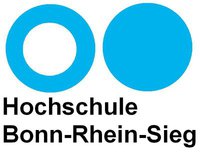 |
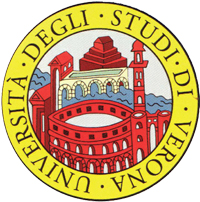 |
| Size | Modified | |
| edufill.png | 179 KB | 2012/07/13 |

